Group leader:
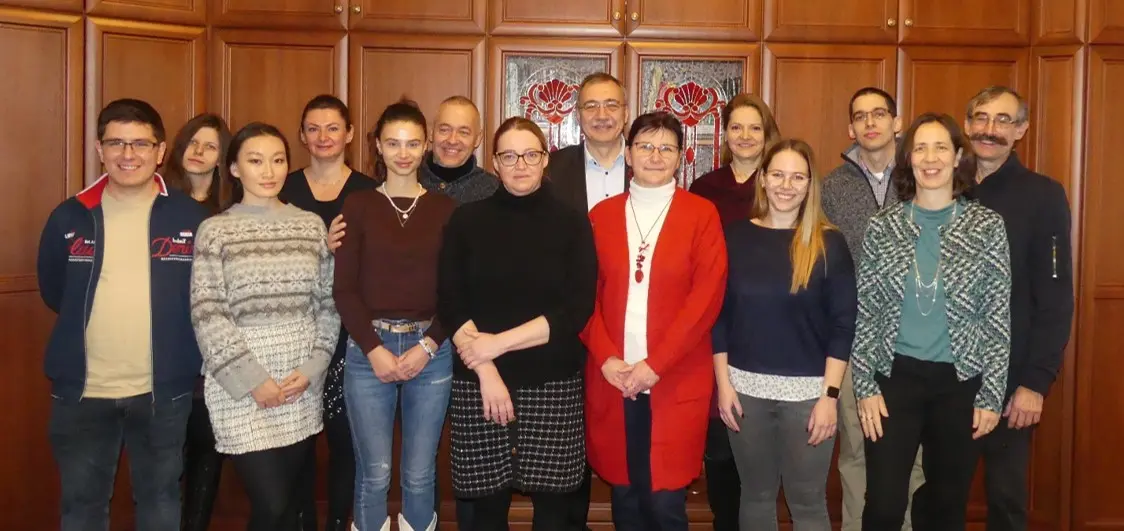 Prof. Dr. László Csernoch
Prof. Dr. László Csernoch
Full time researchers:
Dr. Eliza Guti
Zsigmond Kovács
Dr. László Szabó
Part time researchers:
Dr. Mónika Szentandrássyné Dr. Gönczi
Dr. Mónika Sztretye
Associated researchers:
Dr. Beatrix Dienes
Dr. Péter Szentesi
Duration: July 1st, 2022. – December 31th, 2027.
The Ca2+-homeostasis workgroup of the Department of Physiology from the University of Debrecen has been dealing with the investigation of intracellular calcium homeostasis for many years, primarily for a more thorough understanding of the functioning of striated muscles, but we have also made significant observations on other cell types (smooth muscle, keratinocyte, melanoma). Furthermore, we examine the regulatory effect of certain elements of the cytoskeleton on the functioning of skeletal muscles, the processes of muscle regeneration and, more recently, the role of the skeletal muscle endocannabinoid system in health and disease.
The HUN-REN-UD Cell Physiology research group building on previous results and the contributing young researchers aims to clarify the role of the mechanosensitive Piezo1 calcium channel in skeletal muscle and its role in pathological conditions. Piezo channels (Piezo1 and Piezo2) have proven their importance in basic physiological processes since their discovery just over a decade ago. Deletion of the PIEZO1 gene is embryonically lethal. Previously, our working group proved that the Piezo1 channel contributes to the development of calcification in vascular smooth muscles, so it can be a potential target in the treatment of vascular calcification (Szabó et al. 2022).
In our preliminary experiments, we also detected the expression of the channel on skeletal muscles. During the planned work, in addition to investigating the role of Piezo1 in skeletal muscle, we also want to characterize the function of the channel in addition to the changed mechanical properties of the cell membrane. These questions are of particular importance in the research of therapeutic options and preventive procedures, which on the one hand are aimed at reducing the loss of muscle function associated with aging, and on the other hand, they try to reduce the loss of muscle that occurs during long-term space travel.
The HUN-REN-UD Cell Physiology research group of the University of Debrecen has set the goal of conducting the following basic research for the period between July 2022 and June 2027:
- Uncovering the role of Piezo1 in skeletal muscle and the effect of its activation on muscle fatigue;
- Investigation the effect of changed microgravity environment and ionizing radiation on the activity of Piezo1 channels expressed in skeletal muscle;
- Development of a skeletal muscle cellular model system that can be used in the clinostat;
- Examination the occurence and appearance of Piezo1 modifications in pathological conditions and the examination of channel expression in muscle samples from different patients of different ages and muscle diseases;
- Investigation of the role of membrane structure on the activity of Piezo1 channels expressed in skeletal muscle;
- Generation of a skeletal muscle specific Piezo1 knock-out mouse model;
- Evaluation of the relationship between Piezo1 channels and the cytoskeletal system;
- Modification of the expression of Piezo1 channels in cell cultures and the effect of such channel mutations in knock-out cell cultures;
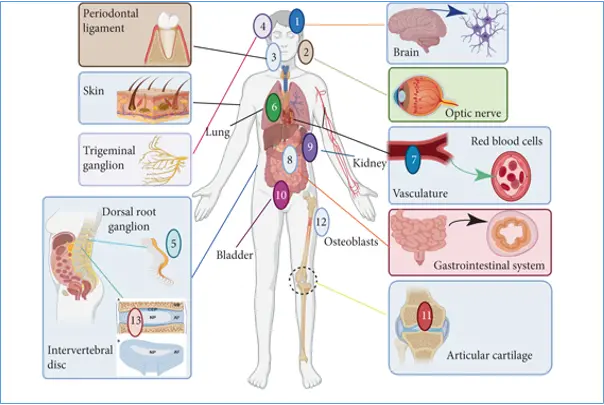 |
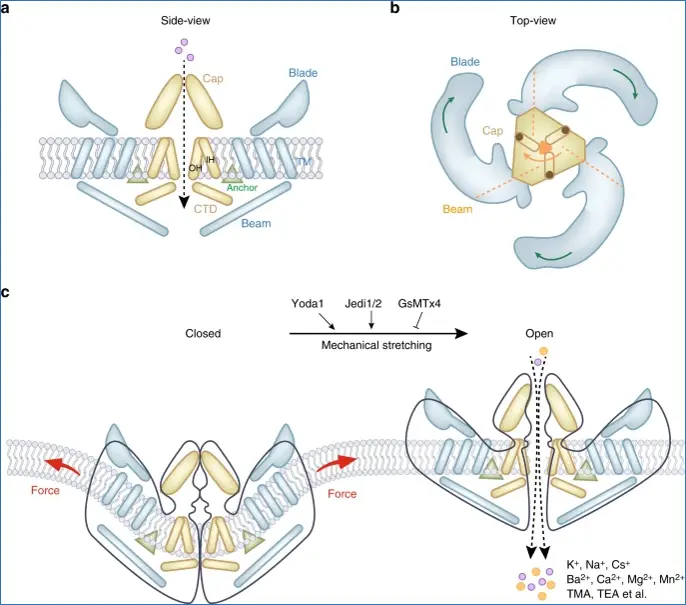 |
| Expression of Piezo1 in various human tissues and cells | Schematic diagram of Piezo1 channel activation by mechanical force |
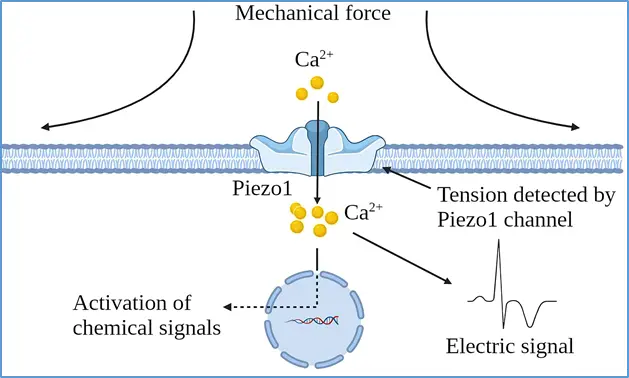 |
|
| Structure and activation of the Piezo1 channel in mice | |
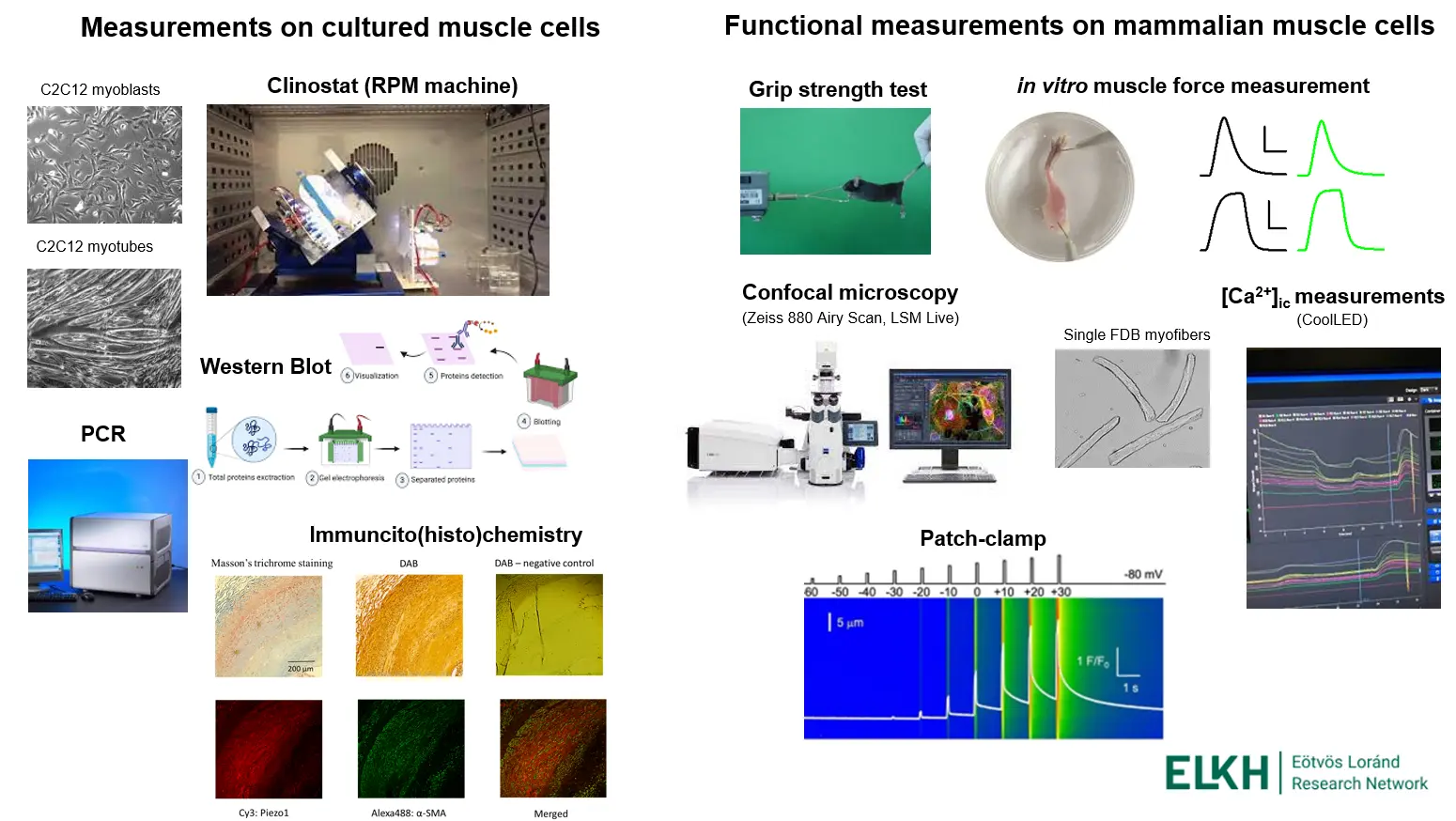
Publications of the research group connected to the project :
Szabó L, Balogh N, Tóth A, Angyal Á, Gönczi M, Csiki DM, Tóth C, Balatoni I, Jeney V, Csernoch L, Dienes B.J . Front Physiol. 2022 Nov 10;13:1037230. doi: 10.3389/fphys.2022.1037230. eCollection 2022.
Conference abstracts and other achievements of the research group connected to the project :